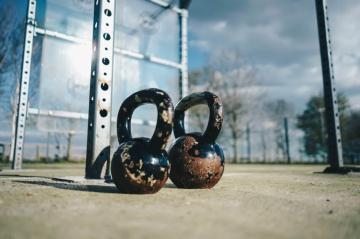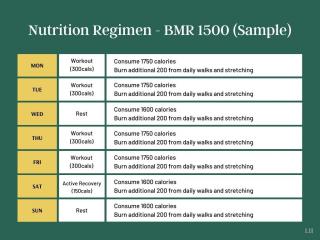One of the most serious – and common – causes of chronic disease is inflammation.
High levels of inflammation in the body cause your cells to deteriorate and lose their ability to function properly. In turn, this leads to the development of diseases such as cancer, autoimmune dysfunction, and other disorders.
Inflammation is a necessary biological process that kickstarts your immune system. Chemical mediators alert the body to the areas that need defending or repairing. Unfortunately, when inflammation continues for too long, it can have serious consequences.
The level of inflammation in your body is influenced by a number of factors, including diet, lifestyle, and environment.
In the gut, inflammation can also be caused by an imbalance of microorganisms in the gastrointestinal tract. When harmful microbes or yeast such as Candida grow and spread, they can severely damage the lining of the gut. The resulting immune response can cause further inflammation and damage.
Fortunately, reducing gut inflammation can be a matter of altering the choices you make in everyday life. In fact, there are three simple steps you can take today to reduce inflammation in your gut. Let’s take a look!
1. Drink More Water to Get Rid of Toxins
Every single day, we are exposed to toxins. Air pollutants, heavy metals, mold, and airborne pathogens are around us all the time – without us even knowing it.
Many of our foods are full of toxins too, like pesticides, antibiotics, and even added sugars.
These toxins are serious contributors to inflammation. They ‘turn on’ genes that promote inflammation causing cancer, heart disease. In the gut, these toxins can cause imbalances in your gut flora that allow inflammatory chemicals to be released. This inflammation promotes changes elsewhere in the body that can lead to chronic diseases.
One of the best ways to flush toxins from the body is also one of the simplest. Drink more water! Drinking plenty of water each day is an effective and essential way to help your gut and body detoxify:
Your intestinal tract needs water to function optimally, moving waste efficiently through the gut and out of the bowels. Your liver and kidneys are two of your body’s most important detoxification organs. Both of these require a constant supply of water in order to function properly. Your sweat also flushes toxins out of your body. Sweat is largely made up of water.Just as importantly, each of your cells requires adequate hydration to carry out its proper functions. Studies have shown that inadequate cellular hydration can contribute to the release of pro-inflammatory chemicals and even lead to inflammatory disorders.
In general, the more hydrated you are, the less inflammation will be present in your body.
What to Do:Try to drink 2-3L of water each day, or six to eight glasses. Make sure your water is fresh and filtered, or at least free of contaminants such as chlorine, fluoride and heavy metals.
It may be helpful to carry a bottle of water with you throughout the day, so you can keep sipping it instead of guzzling a large amount of water at once.
One of the healthiest ways to drink water is with a squeeze of lemon juice. Lemon juice is rich in vitamin C and can boost your immunity.
Not sure if you’re properly dehydrated? There’s an easy way to find out! Check the color of your urine when you’re next in the bathroom. If it’s yellow, your body likely needs more water. If it’s clear, you’re properly hydrated.
2. Exercise Regularly to Keep Your Detoxification Organs Active
Daily exercise is absolutely essential for keeping your whole body in good working order, including your gut.
Physical activity stimulates your body’s major detoxification organs, including your intestines, urinary tract, sweat glands, circulatory system, and lymphatics.
When these systems are able to move toxins and waste out of the body, inflammation is kept to a minimum.
New research shows that as little as 20 minutes of exercise could have anti-inflammatory effects on the gut and the entire body.
Exercise improves the body’s anti-inflammatory response by activating the sympathetic nervous system. This boosts your heart rate, blood pressure, and breathing rate. As a result, your body releases hormones including epinephrine and norepinephrine into the bloodstream, which have the job of activating the adrenal receptors of immune cells.
In a recent study, researchers examined the effects of a single 20-minute session of exercise on immune system activation. They found that even this small amount of exercise was enough to suppress the production of pro-inflammatory cytokines by 5%.
Inflammation is a necessary part of the body’s immune response, but too much inflammation can lead to disease. Chronic inflammation may contribute to diabetes, obesity, celiac disease, arthritis, fibromyalgia, or bowel diseases such as Crohn’s disease or ulcerative colitis.
It seems that even short periods of exercise can reduce the body’s inflammatory response, which may lead to exercise being recommended as a part of future treatment plans for inflammatory conditions.
Exercise also forces fresh blood to your tissues, which reduces inflammation by helping flush away metabolic debris. It provides nutrients to inflamed or damaged tissues, which facilitates repair and restoration.
Just like hydration, exercise also keeps your digestive system moving and promotes good digestive health, further reducing inflammation in your gut.
What to Do:If you lead a sedentary lifestyle, it’s vital that you make a plan to walk, jog, swim, or stretch for at least 30 minutes every day.
Most modern phones now come with some kind of activity tracker. For example, if you own an iPhone then you might already be familiar with the iOS Health app. This handy app will track the steps that you take each day. Many people aim for 10,000 steps per day, which is a very healthy goal to have.
Equally, try to avoid sitting for extended periods of time. If you work long hours, set a timer to get yourself up and moving on a regular basis, at least every hour.
And, as I mentioned earlier, be sure to follow your exercise with plenty of water!
3. Take Curcumin — a Natural Anti-Inflammatory Remedy
Curcumin is the active ingredient in turmeric, a bright orange spice. It’s one of the most powerful, natural, anti-inflammatory remedies on earth, especially for the gut.
Curcumin aids digestion by relaxing the smooth muscles on the walls and helping with the movement of food through the intestines. It also helps to relieve the buildup of gas and bloating as food is being broken down.
In the colon, curcumin promotes a healthy balance of gut bacteria, which is essential for your immune system to function optimally. It also encourages cells of the intestinal lining to regenerate and heal following damage caused by pathogenic bacteria or yeast overgrowth such as Candida.
Recent studies have even shown that curcumin may an effective means of inhibiting intestinal fungal infections. Clinical trials have reported that high concentrations of curcumin have a powerful antifungal effect against this harmful yeast, as well as other fungal infections. There is evidence that curcumin can inhibit the growth of Candida albicans more effectively than common antifungal drugs.
Research has shown that curcumin’s medicinal activity is largely due to its phytochemicals. These are plant chemicals that harbor antioxidative and antibacterial properties. These phytochemicals may also help to ease nausea caused by mental issues such as anxiety and stress.
The anti-inflammatory and antibacterial activity in curcumin may also help reduce gut pain caused by spicy foods, alcohol, or pathogenic bacteria. The incredible compounds in curcumin support your natural digestive processes, which can mean that your gut doesn’t have to work as hard to break down food.
What to Do:Taking curcumin is as simple as finding a quality supplement from a good health store.
You can also blend turmeric powder into smoothies, meals or a turmeric latte. Be sure to add a healthy fat such as coconut oil, as well as black pepper. This helps your body to absorb the active constituents of the curcumin.
The Bottom Line
When reducing inflammation in your gut, your first priority should be to reduce the amount of pro-inflammatory factors in your diet and lifestyle.
The three steps mentioned above are very easy to incorporate into your daily routines, and will help to minimize the inflammatory processes happening inside your body.
By supporting your body’s detoxification functions with adequate exercise and hydration, you’ll be dramatically reducing the amount of harmful toxins that your immune system has to fight every day. Fewer toxins means your body can focus more on healing!
This is significantly improved by adding curcumin to your daily diet, whether as a supplement or in your meals. Curcumin is a remarkable ingredient for an inflamed gut: it will help soothe those irritated membranes, fight off yeasts such as Candida, and support the healing of the intestinal lining.
Take these simple steps and start to reduce your inflammation today. Your gut will thank you!
More Resources About Gut Health
Featured photo credit: rawpixel via unsplash.com





























































